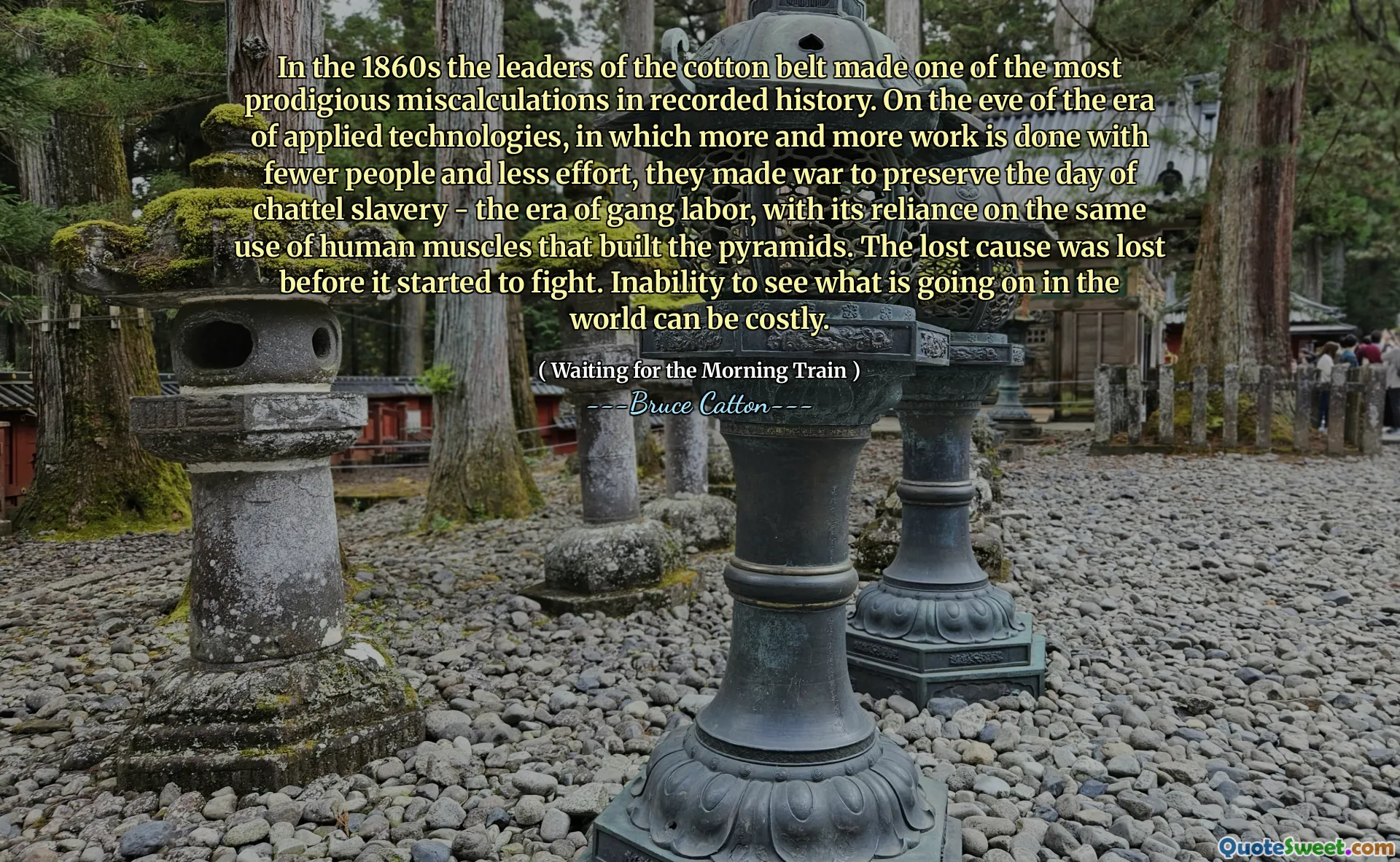
In the 1860s the leaders of the cotton belt made one of the most prodigious miscalculations in recorded history. On the eve of the era of applied technologies, in which more and more work is done with fewer people and less effort, they made war to preserve the day of chattel slavery - the era of gang labor, with its reliance on the same use of human muscles that built the pyramids. The lost cause was lost before it started to fight. Inability to see what is going on in the world can be costly.
In the 1860s, leaders in the cotton-producing southern states failed to recognize the approaching changes brought by technological advancements. They mistakenly chose to engage in war to maintain the institution of slavery, which relied heavily on manual labor similar to that of ancient civilizations. Their decision was based on a reliance on outdated methods, disregarding the inevitable shift towards efficiency and mechanization that was already on the horizon.
This miscalculation highlights the dangers of being unable to perceive significant trends in society. The attempt to cling to a dying system of gang labor proved futile, as the 'lost cause' was already doomed before it even commenced. Ultimately, this refusal to adapt to progress illustrates how costly ignorance can be in leadership and decision-making during pivotal historical moments.







